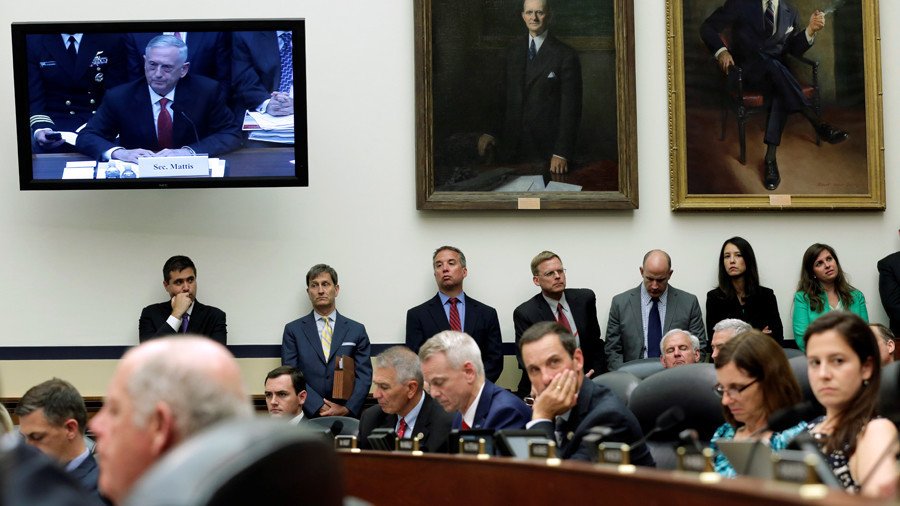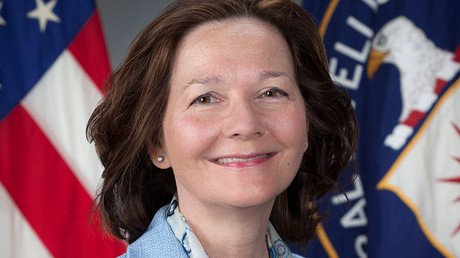Hefty & heftier: US lawmakers push Trump to spend more on Russian ‘propaganda fight’

The State Department has a $120-million war chest to counter ‘Russian propaganda’ but that’s not enough for top lawmakers, who are demanding that President Donald Trump pumps even more into the costly effort.
Members of the House Armed Services Committee demanded that the US president invests more money and finally appoints a leader of the Global Engagement Center (GEC), the State Department’s wing that fights foreign propaganda.
A letter, sent on March 9 by committee chairman Mac Thornberry (R-Texas) and ranking member Adam Smith (D-Washington), calls on Trump to pump more money into the GEC to counter propaganda and disinformation.
“We are... disappointed that to date your administration has not provided adequate resources, including funding and personnel, to the GEC to carry out its mission and, furthermore, that you have not yet appointed a director to lead the agency in this endeavor,” the letter read.
The GEC was created by former president Barack Obama’s administration in 2016 and granted $120 million for its efforts – none of which has yet been spent. Initially, the task force had a declared goal of combating Islamist propaganda online.
But, in the last days of the Democrat president’s tenure, it began dealing with what it was probably set up for – countering “Russian and Chinese propaganda” aimed against America’s institutions.
The lawmakers’ call to appoint a leader to direct the two-year-old agency has been left unanswered so far. But some among the retired US diplomats could not resist trying to come any closer to the $120-million pie.
Michael McFaul, a former US ambassador to Moscow was one of them. Earlier in March, he passionately wrote on Twitter: “Is [sic] the @StateDept wants to contract out its assignment to spend $120 million to combat Russian propaganda, I’m sure I could put together a great team! (and I speak Russian!)”
The latter statement is a bit doubtful, because he recently shared a fake video clip of mass protests with a caption in Russian inciting people to kill security officials. Then, it turned out that the peculiar video was shot in Bahrain and not, as claimed by the original poster, the latest rally in Iran.
“I apologize. I misread the caption, & then deleted after realizing my mistake (My Russian is rusty),” he tweeted later.
Still, that money is just a tiny portion of what the US spends on its own, government-friendly media. The Broadcasting Board of Governors (BBG), the parent body for outlets like Radio Free Europe and Voice of America, requested over $685 million of taxpayers’ money for fiscal year 2018.
In an NPR interview last year, none other than BBG head John Lansing claimed that Russia outspends the US “ten to one” when it comes to disinformation and propaganda. That would mean Russia spends nearly $7.5 billion on media directed at foreign audiences every year – a totally inaccurate claim. In actual fact, the BBG’s budget of $748 million (2017 figures) is significantly bigger than the amount Russia allocates to foreign media.
In testimony before the Senate Foreign Relations Committee last year, Julianne Smith of the Center for New American Security outrageously claimed that RT spends $400 million on its Washington bureau alone. In reality, that is approximately the budget of RT and Sputnik – Russia’s two state-supported media outlets – combined.
It seems there is a method to the madness, however. If tales of Russian propaganda and massively exaggerated figures keep finding their way into the mainstream media, the US agencies tasked with “countering” it will continue to see their own budgets increase.
















